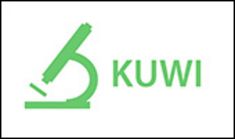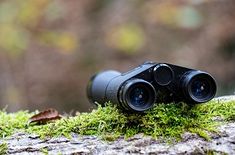Information
The scholarship for short-term scientific research work abroad (KUWI):
The scholarship for short-term scientific work abroad is awarded directly by the University of Natural Resources and Life Sciences in Vienna.
A part of the KUWI scholarships will be financed from the budget of the Academic Social Workers Association (ASAG)
The KUWI applications for the USA, as far as the criteria are fulfilled, may be forwarded BY BOKU-International Relations to the Marshallplan Foundation. The students, who are rejected by the Foundation, are still eligible for the KUWI scholarship.
What is funded:
|
What is not funded:
- Requests to attend conventions, conferences and congresses by the scholarship recipient (as that is not the main goal of this scholarship) will not be funded,
- Scientific research in the home country, which is a member of the OECD,
- ERASMUS scholarship holders.
- Simultaneous application for the KUWI scholarship and the need-based scholarship (Förderungsstipendium) is not allowed!
- Please note that if you receive another scholarship, the study abroad advisory board (Auslandsbeirat) will decide on an individual basis whether to award it. The receipt of other scholarships for the research stay must be stated in the application (comment field on Mobility Online).
Duration of the scholarship:
Generally, for work on a master’s thesis, the study abroad period should last for
at least 2 weeks, but not exceed 4 months.
For doctoral dissertation or postdoctoral work, however, the period abroad may last up to 7 months.
An extension of the scholarship for short-term scientific work abroad is not possible.
Other funding opportunities such as ERASMUS-Traineeship should be given priority. For research stays in Switzerland, please ask the Swiss host institution whether applying for SEMP is possible.
The Awarding of the Scholarship:
The study abroad advisory committee, composed of one professor from each field of study, the executive head of BOKU-International Relations (BOKU-IR) and the KUWI program coordinator, carries out the awarding of the scholarship to recipients.
Study Abroad Advisory Board:
- BOKU-International Relations Dr. Calderòn-Peter
- FW Prof. Gratzer
- LAP Dr. Tusch
- UBRM Prof. Haas
- LBT Dr. Ata
- KTWW Prof. Kammerer
- LW Prof. Hietz
Please note that the members of the Study Abroad Advisory Board cannot issue letters of recommendation for KUWI!
Award criteria:
- PhD students working on their dissertation have priority over master’s students,
- quality of the research project,
- a structured research plan, including a chronological list of proposed activity while abroad, must be provided. It is also possible, however, to simply turn in a list of actual courses that are available only at the institution abroad (and are imperative to the proposed research project),
- documentation of previous courses taken (with documented grades and the duration of each),
- valid documentation of foreign language proficiency,
- an overall impression of each applicant’s personal and professional aims will also be evaluated.
While filling out all of the application requirements, please make note that, unlike the Studienbeihilfe law required to provide financial support to students abroad, the applicants of this scholarship have no legal claim over the scholarship provider (KUWI), when financial support is not awarded. The KUWI scholarship is private and therefore may choose applicants as it sees fit. When submitting your application, please note that the first and last day of the research stay must be a weekday.
Please note: due to the limited spaces available, only the best applicants can be selected for the award
After the decision of the advisory board, a letter will be issued to the applicants informing them of either their acceptance or rejection to/from the scholarship programme.
Once the award is given, the applicant will not only receive an award document but also an acceptance of terms and conditions document that must be filled out and returned back to BOKU-International Relations (BOKU-IR) as soon as possible. It is only after the latter document has been returned to BOKU-International Relations (BOKU-IR) that request for remission fee can be sent.
The total sum of the scholarship, along with an allowance for travel expenses, will be paid in full.
If it is not possible to use the scholarship within a year, (for example, a postponing or interruption of studies), then you must give us knowledge of this and pay back the unused sum that had previously been awarded to you!
If there is a suspension in the duration of the project, a new letter of endorsement from the visited university must be provided!
Recommendention for course before your stay abroad: Security training for studying and field research abroad - raising awareness for critical and emergency situations (in Eng.)
Insurance: Students who receive the KUWI scholarship have an explicit travel order from BOKU university and are therefore insured for the research period (Facility Management can provide you with details) Information about the ÖH (Austrian Students' Union) liability insurance can be found online: https://www.oeh.ac.at/en/service/oeh-insurance/ Please check whether your destination country is covered. Remember to pay your ÖH membership fee during your stay abroad. |


